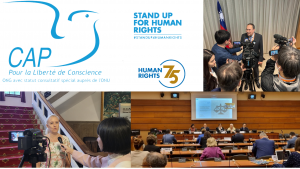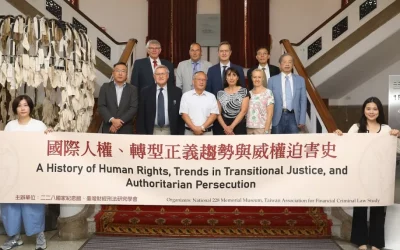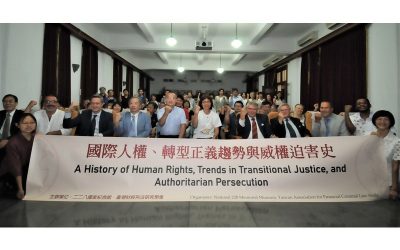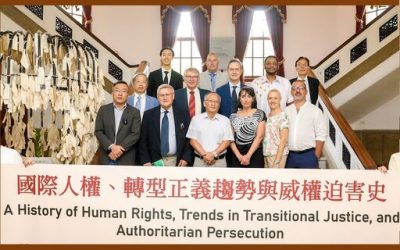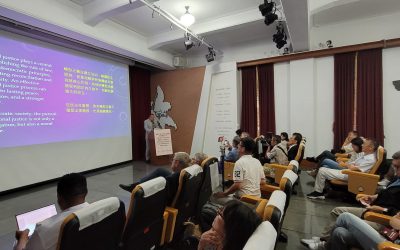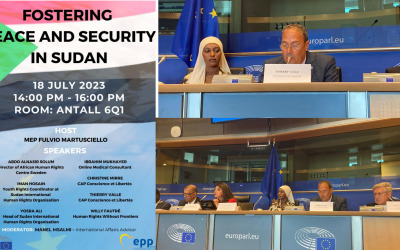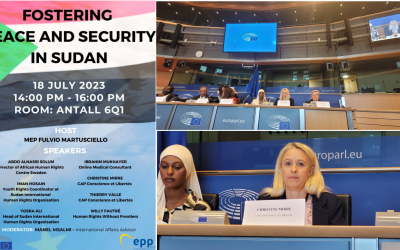
What is “Coordination des Associations et des Particuliers pour la Liberté de Conscience” (CAP Freedom of Conscience)?
CAP Freedom of Conscience is a secular European NGO with United Nations Consultative Status, created in 1995 and dedicated to protect the Right of Freedom of Religion and Belief.
CAP Freedom of Conscience combats all forms of discrimination based on religion or belief by alerting European and International bodies.
CAP Freedom of Conscience collects testimonies of discrimination and human rights violations affecting religious or belief communities in order to disseminate them to international bodies, and in order to raise awareness and inform them as well as to generate debate on the protection of Freedom of Religion and Belief.
CAP Freedom of Conscience also advocates for any religious or spiritual group facing discrimination to have their right to Freedom of Religion and Belief recognized.
CAP Freedom of Conscience is a member of the European Federation for Freedom of Belief (FOB), European Network Of Religion and Belief (ENORB) and participate to the Civil Society Platform of Fundamental Rights created by the EU Fundamental Rights Agency DAFOH Partners in Combating and Preventing Forced Organ Harvesting
CAP Liberté de Conscience Responds to the Call on Children’s Right to Access to Justice and to an Effective Remedy
CAP Liberté de Conscience (CAP LC) has submitted a detailed report in response to the public consultation launched by the UN Committee on the Rights of the Child regarding the draft of General Comment No. 27 on children’s right to access to justice and to an effective remedy. The call for submissions, available at the OHCHR website, seeks perspectives on improving mechanisms to ensure that children can access justice effectively and receive appropriate remedies for violations of their rights. The contributors addresses systemic challenges in France and proposes concrete recommendations to safeguard children’s rights in judicial and social protection settings.
HRC 59 : The Ongoing Genocide in Sudan and The Intervention of International Actors
On Wednesday 18 June 2025, a side event on “The Ongoing Genocide in Sudan and The Intervention of International Actors” was hosted by the Coordination des Associations et des Particuliers pour la Liberté de Conscience (CAP Freedom of Conscience), and co-hosted by Global Human Rights Defence (GHRD), coinciding with the 59th session of the Human Rights Council.
HRC 59 Sudan Item 3: ID with the SR on extrajudicial, summary or arbitrary executions
I speak today on behalf of victims of violence committed by the Rapid Support Forces in Sudan and their foreign backers.
Since the outbreak of the conflict, thousands of civilians have been killed or injured with almost 12 million people who have fled their homes. The RSF has launched repeated attacks on displacement camps, forcing civilians to flee again.
HRC 59 Side-event Human Rights in Sudan
Join us for this important side event, which will bring together legal and human rights experts,
victims, speakers with knowledge of the situation in Sudan to discuss the ongoing crisis and explore
potential ways to end the violations and hold those responsible to account.
Committee Against Torture Puts France’s Law Enforcement Practices and Detention Conditions under Scrutiny
During the 82nd session of the Committee Against Torture (CAT)[i], France’s record on police practices and detention conditions faced pointed scrutiny. Omnium des Libertés (ODL) recent report submitted to the Committee[ii] provided testimony-driven evidence highlighting abuses by French law enforcement and violations of detainees’ fundamental rights. In this context, the Committee used its platform to seek clarity and accountability from France, reinforcing the utility and urgency of independent civil society reporting.
HRC 58 : Geneva Conference Highlights Religious Persecution and Education Crisis in Pakistan
A side event held during the 58th Session of the United Nations Human Rights Council, Geneva, on 26th March 2025 drew urgent attention to systemic human rights violations in Pakistan, focusing particularly on religious persecution, education policy, and the use of European Union development instruments.
CAP Freedom of Conscience involvement in Europe
Transformational justice stepping on thunder? European and American Human Rights Experts Warn: Be Careful of Ruining the Democracy of Taiwan
Christine Mirre, vice-chairman of CAP-LC, the French Coordination for Individuals and Organizations Freedom of Conscience, said that what she felt during this visit was that the police and soldiers who originally rescued Taiwanese from Japanese occupation turned out to be protectors. oppressor. Taiwan must really turn the page, otherwise it will be a wound that has not yet healed. This is indeed unknown to Western countries. She believes that this is indeed a big wound for Taiwan.
Are there too many human rights mines in Taiwan? International Human Rights Forum Calls for Cancellation of Transitional Justice Timeline
Christine Mirre, vice-chairman of the French Coordination for Freedom of Conscience of Individuals and Organizations, said that what she felt during this visit was that the police and soldiers who were supposed to be protectors of Taiwan from the Japanese occupation turned into oppressors. Taiwan must really turn the page, otherwise it will be a wound that has not yet healed. This is indeed unknown to Western countries. She believes that this is indeed a big wound for Taiwan.
Taiwan’s transformational justice is not enough! European and American human rights experts visit the 228 Memorial Hall
President Tsai Ing-wen has publicly promised that transitional justice will not stop. What do international scholars and experts say about this? International human rights experts from Europe and the United States visited the February 28 National Memorial Hall on the morning of July 28 and were grandly received by the executive director Yang Zhenlong. During the exchanges, human rights experts pointed out that Taiwan’s transformational justice is really not enough. In the afternoon, the group participated in a forum co-hosted by the 228 National Memorial and the Taiwan Institute of Economics and Criminal Law to discuss “international human rights, trends in transitional justice, and history of authoritarian persecution.” Many scholars mentioned the Taijimen case, an iconic case in Taiwan, and Questioned the situation that Hou Kuanren, director of the Institute of Forensic Medicine of the Supreme Prosecutor’s Office who was a prosecutor, investigated many cases of abuse of power and law, but was not punished but was promoted. He called on the Taiwan government to restore the historical truth, face it squarely, and speed up the resolution.
28 07 2023 A History of Human Rights, Trends in Transitional Justice, and Authoritarian Persecution Taïwan Nation 228 Memorial Museum
Transitional justice is a complex and essential process that a democratic country must undertake to address past human rights violations, atrocities, and injustices.
Today, we will examine the key components and strategies needed to ensure a successful transitional justice process in a democratic country like Taiwan.
We will see how the implementation of transitional justice in a democratic country can emphasize the importance of inclusiveness, accountability, restorative justice, and sustained engagement in achieving a just and harmonious society.
The various peace and security proposals put forward by the United Nations UN Security Council on the conflict in Sudan.
The United Nations Security Council convened on 2nd June 2023, to discuss the ongoing situation in Sudan.
The members of the Security Council recalled the previous Press Statement issued on 15 April 2023, expressing deep concern regarding the continued military clashes between the Sudanese Armed Forces and Rapid Support Forces.
I will summarize the key points and outcomes of the Security Council’s deliberations.
The devastating impact on women of the ongoing conflict in Sudan and the crucial role they can play in the peace process
As we all know, women, along with children, are the most vulnerable targets in wartime.
Gender-based violence and crime, such as rape and the destruction of property and lives, are the greatest threats to women, and these crimes are often overlooked and committed with impunity.
According to UN estimates, even before the fighting broke out on April 15, more than 3 million women and girls in Sudan were at risk of gender-based violence. This figure has since risen to 4.2 million.







